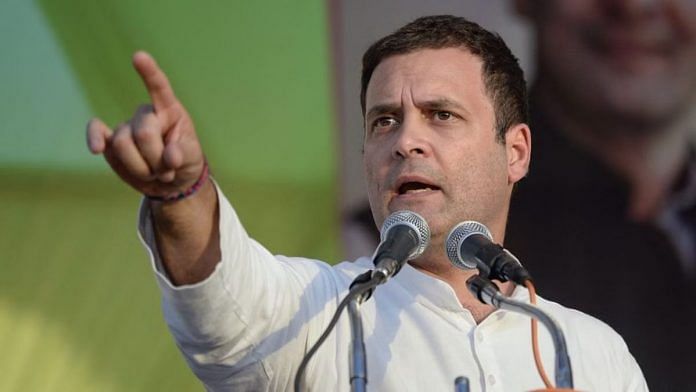What’s wrong with Rahul Gandhi? Or, just to be kinder to him, should we ask instead, “What’s wrong with his advisors and handlers?” These questions arise, once again, in the light of the Surat Sessions Court turning down his appeal to stay his conviction on the charge of criminal defamation.
The case, if full of twists and turns—most of them ironic—is turning out badly for Gandhi. The latest, though I dare say not the least of these, is the honourable court’s view that Gandhi is not an ordinary person. As a member of parliament and leader of India’s second largest party, must exercise ample caution when he speaks. “It would be worthwhile to observe that the Appellant was not an ordinary person and was sitting MP, connected with public life. Any word spoken by Appellant would have large impact in mind of common people,” the court said.
This is ironic because after his earlier conviction by the trial court, BJP ministers and spokespersons went to town saying that Rahul Gandhi is just an ordinary person and should be treated as such. Why should he expect special treatment? Was he above the law? In this case, the “special treatment” by the court has actually meant being held to higher standards of conduct and responsible speech.
Also read: Rahul Gandhi can drive Mandal 3, reverse social justice politics that BJP pushed to dead-end
Dragging Savarkar, Bharat Jodo Yatra
Ordinary or not, the farce of going to court with two chief ministers earlier and, instead of apologising, insisting that he was right shows his lack of understanding of both the law and the public sentiment. Gandhi could easily have said something to the effect that he had no intention of insulting any community but that he was merely trying to uphold high standards of conduct in public life, both from politicians and businessmen. Furthermore, he could have said that he regretted any unintended offence he might have given to those whose surname happened to be Modi.
Instead, he shot off his mouth about “Veer” Savarkar saying that unlike the latter, he was a Gandhi and would never apologise. To apologise is not a weakness, especially when one has made a mistake, even an error, whether in fact or judgement. To acknowledge one’s faults does not show weakness or lack of integrity, but actually strength of character and humility. If there is one thing that Indian voters cannot abide is arrogance and entitlement—especially from their elected representatives.
Dragging Savarkar into the debate over his conviction lost him whatever little sympathy he had garnered as a victim of the ire of the ruling dispensation. Filing mercy petitions against long and harsh spells of political incarceration was viewed—and accepted—as expediency rather than betrayal. Shripad Amrut Dange, one of the founders of the Communist Party of India, submitted pleas which were even more abject and humiliating than Savarkar’s. Gandhi’s remarks on Savarkar cost him dear in Maharashtra, where both his allies and enemies went on offensive overdrive against him.
The ruling party and its allies could not be more grateful to Gandhi for giving them such repeated opportunities. As if this were not bad enough, Gandhi’s conduct during and after the trial, unfortunately, has diverted attention from his attacks on Prime Minister Narendra Modi and the BJP. The gains so hard-earned, considering that he walked over 4,000 kilometres in 150 days, of the “Bharat Jodo Yatra”, were well-nigh squandered.
As to the Yatra itself, it is doubtful if it succeeded in knitting India together, let alone living up to its potential or promise. Did it reinstate Gandhi as a national leader? No. Only as the princeling head of a divided Congress, who does not intend to disappear into the sunset. Why? The simple answer is that the messaging was all muddled up and confusing. Even his remarks abroad—so easily recast as a treasonous appeal to external powers to intervene in India.
The main reason for his repeated discomfiture is simple to diagnose. Gandhi’s off-the-cuff gaffes, so enticingly capable of being quoted out of context, causing embarrassment to his party and himself. Why don’t any of his advisors and well-wishers tell him never to speak without a script? As if to echo this commonsensical admonition, the Surat Sessions Court in its 27-page verdict, observed that Gandhi “Should have been more careful with his words.” Perhaps, that should be his watchword from here on.
Makarand R. Paranjape is an author and professor. His Twitter handle is @makrandparanspe. Views are personal.
(Edited by Ratan Priya)



